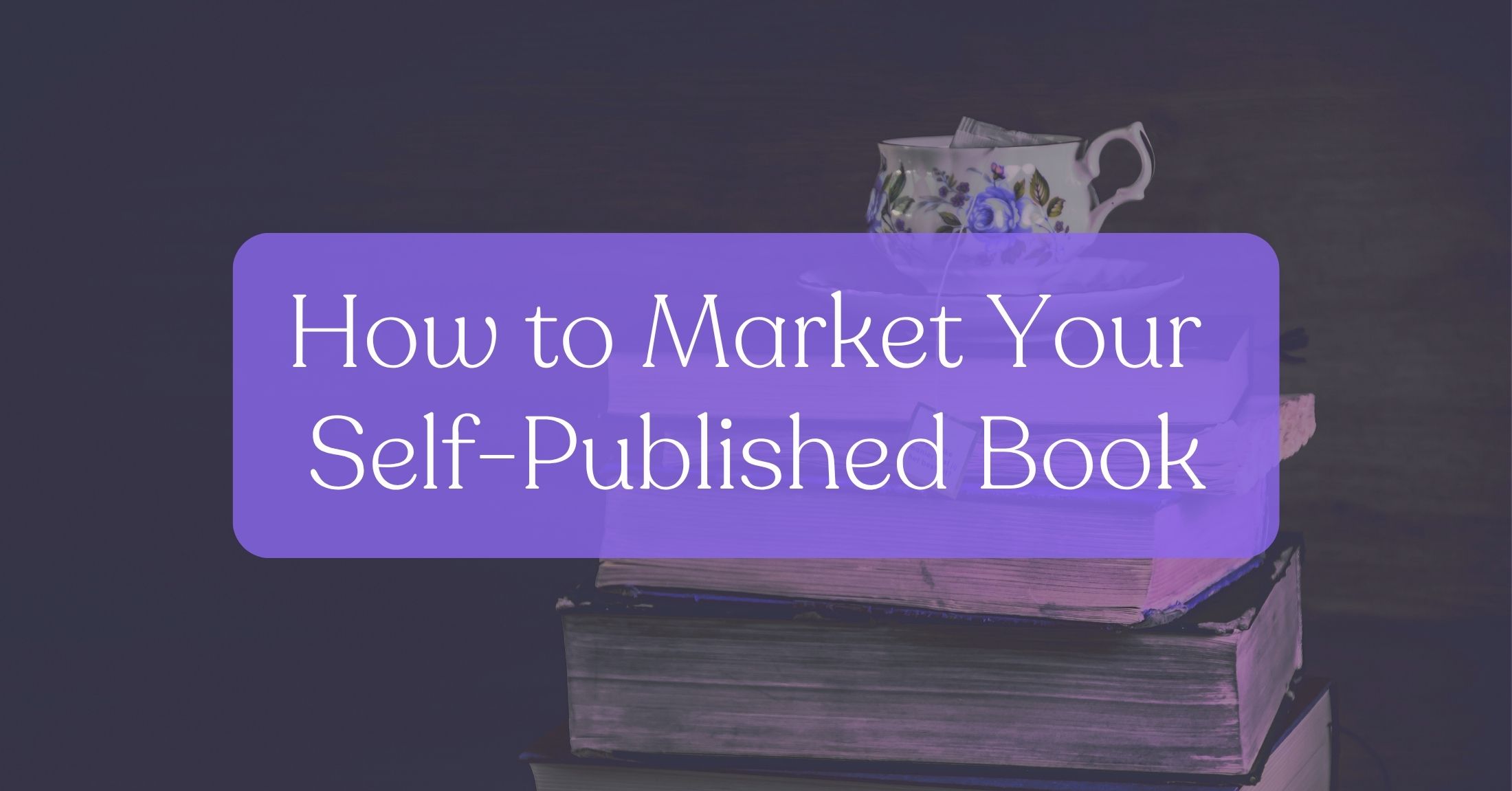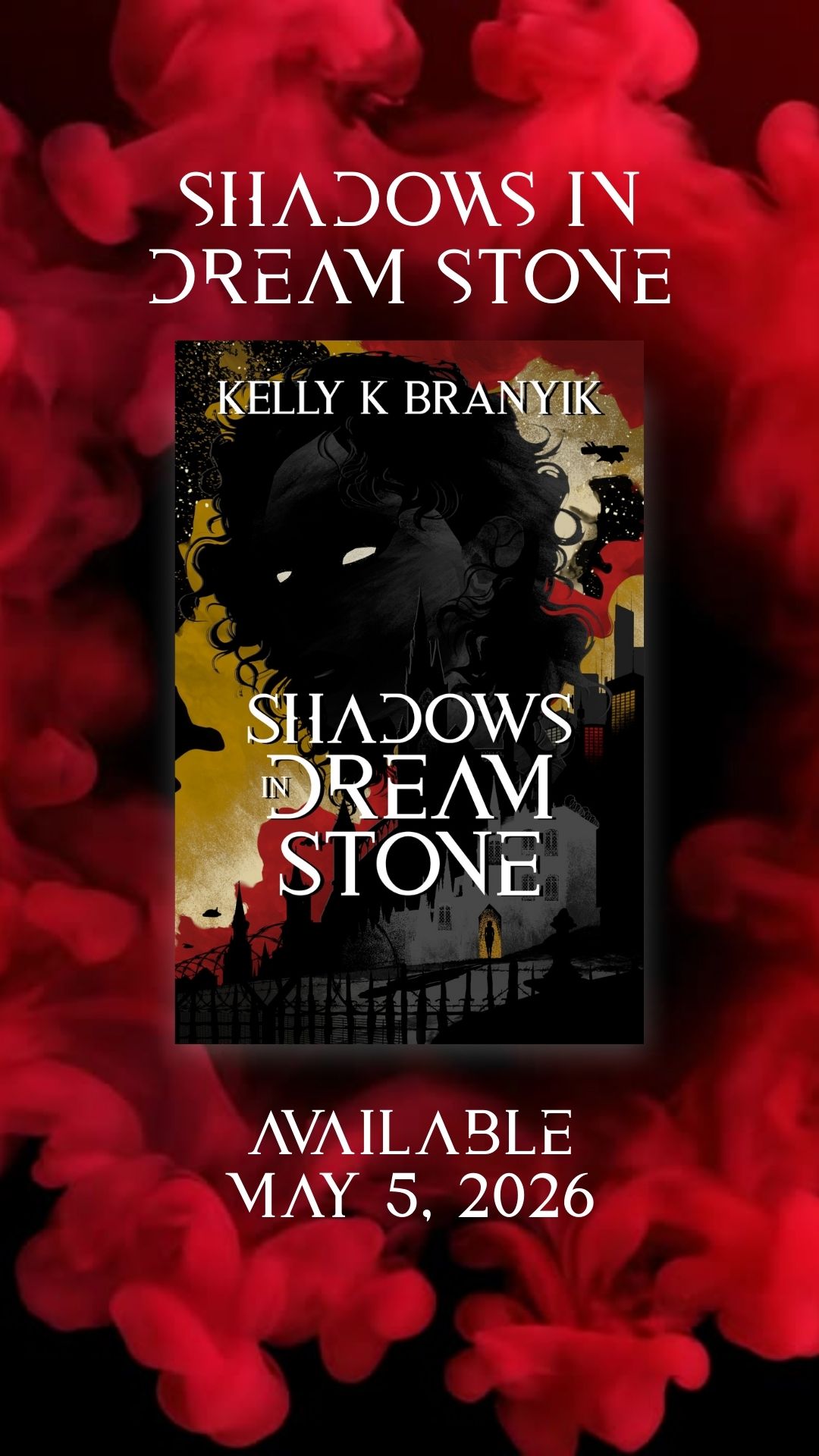Most self-published authors don’t struggle because their books aren’t good. They struggle because no one can find them.
Between confusing marketing advice from all directions, burnout from social media, and the myth that you just need to “write the next book,” marketing can feel impossible. But it doesn’t have to be.
After ten years in digital marketing (and a few years as a Semrush SEO content writer), I’ve learned that effective book marketing doesn’t require a big budget. It requires a thoughtful strategy.
There are two cost effective tactics every indie author should be using to promote their books: Search Engine Optimization (SEO) and Social Media. Both are free. Both work long-term. And both can help you build the kind of steady visibility that sells books without burning you out.
The Two Most Cost-Effective Marketing Tactics for Indie Authors
Let’s be honest. Most indie authors don’t have thousands to throw at paid ads. And even if you do, that money runs out fast. Once it’s gone, your visibility disappears with it.
That’s why I always come back to two long-term, cost-effective marketing tactics that keep working even when you’re not: SEO and social media consistency.
Both of these methods build what I call sustainable visibility. They take time, patience, and consistency, but once they start working, they continue to drive traffic, engagement, and awareness for months—or even years—after you create the content.
When I first started experimenting with SEO tactics for my author site, I didn’t have a book out. I was blogging on my own author website, writing about book reviews, writing playlists, and the craft of writing itself. I laced those posts with smart keyword research and watched my traffic grow to over 1,300 monthly visits. In April 2025, I reached nearly 4,000.

That’s the power of SEO. And it’s even stronger when combined with a consistent social media presence that tells Google—and your readers—that you’re active, relevant, and credible.
If you can only invest in two marketing strategies as an indie author, make them these two. They’re free, scalable, and they build a foundation that helps every other piece of your marketing work harder for you.
Why Authors Should Use SEO & Social Media
Okay, so maybe you need a bit more proof.
When you skip strategy, your book lives in obscurity. And just publishing the next book isn’t going to be enough anymore, not if you’re trying to reach new readers. But with SEO and consistent social, you gain discovery and recall. These are the numbers that prove it.
- Over 53% of all web traffic originates from organic search (i.e. people finding you via Google without ads). HigherVisibility & Semrush
- The very top organic result in Google captures ~27.6 % of clicks — it’s not a small bump. Backlinko
- Move up just one slot in the rankings, and your click-through rate can increase by ~2.8 %. Backlinko
- The top organic results earn 19× more clicks than paid ads on average. All in One SEO
- Meanwhile, less than 1 % of searchers click through to the second page of results. Backlinko
And according to Buffer, marketers who post with steady frequency see up to 5× more engagement than those who post sporadically. 64% of users who engage with a brand on social are more likely to buy from them later. For authors, that means each post isn’t just a shout into the void, it’s another chance to build familiarity, spark connection, and remind readers you exist, one post at a time. No ads required.
SEO drives new discoverability people who are actively searching. Social media builds memory, trust, and repeated exposure.
When someone sees your content in search, then later sees your presence across social, the combined effect is powerful and reinforces your brand making them more likely to buy or remember. Numbers-wise: a diversified, consistent social presence plus SEO-optimized content gives you multiple entry paths into readers’ minds.
SEO & Keyword Research for Authors: 4 Tips
When it comes to book marketing, SEO is one of the most underutilized—and misunderstood—tactics out there. But for indie authors, it’s your most powerful long-term tool for discoverability.
Think of SEO as your digital storefront. If readers can’t find you through Google or Amazon search, you’re invisible to a massive audience that’s already looking for books like yours.
Here’s how you can use SEO to your advantage:
1. Choose the Right Keywords
Use keyword tools like Semrush, SpyFu, or Ahrefs to identify phrases with high search volume and low difficulty. In plain English: look for words people are searching for often, but that aren’t too competitive.

Then, take several related keywords and weave them naturally into one blog post rather than fixating on a single term. This helps your content rank for multiple queries at once.
2. Use Google Search Console to Index Your Pages
After you publish a new post, copy its link into Google Search Console (a free tool) and request indexing. This speeds up the process of getting your page listed in Google search results sometimes within hours instead of weeks.

3. Track What’s Working
Use Google Analytics to monitor how readers are finding your website—whether it’s through organic search, social media, or direct visits.
Then, use Semrush to see which of your pages are ranking for keywords and how much traffic each one brings in.
For example, one of my top-ranking posts—a review of Jonathan Livingston Seagull by Richard Bach—brings in around 292 visits a month and ranks for 93 keywords. Another post reviewing House of Earth and Blood by Sarah J. Maas ranks for 126 keywords. I wrote those years ago, and they’re still driving traffic today.

That’s the magic of SEO: once it’s working, it keeps working.
4. Apply the Same Principles to Your Amazon Listings
SEO isn’t just for your website. You can use keyword optimization on your Amazon book descriptions too.
Tools like Publisher Rocket by Kindlepreneur can help you identify keywords readers are already typing into Amazon’s search bar. Add those naturally into your titles, subtitles, and book descriptions.

If someone searches “sci-fi romance books” or “books for parents of LGBTQAI+ teens,” you want your book to be one of the results that shows up.
The key takeaway: SEO is not instant—but it’s cumulative. If you stay consistent and patient, your visibility will compound over time. And that kind of long-term discoverability is priceless for any author building a career.
Building Your Author Website for Visibility: 5 Tips
If you’re an author trying to build a career, a website isn’t optional, it’s essential. Social media can spark interest, but your website is where readers, agents, and potential collaborators come to stay.
One of the biggest mistakes I see indie authors make is relying solely on Facebook or Instagram as their online “home.” But those platforms aren’t designed for long-term discoverability. You don’t own your audience there. The algorithms do. When someone Googles your name or your book, you want your own site to appear first, not a social profile that might get buried tomorrow.
When I worked with author Sharon K. Angelici, she had a Wix website that didn’t have individual pages for each of her books or series. That structure limited her SEO potential. So I rebuilt it with dedicated book and series pages, optimized with relevant keywords like sapphic romance books and books for parents of LGBTQ+ youth.
Creating keyword-rich, well-structured pages will likely increase her site’s visibility, make it easier for readers to find her books organically through Google, and keep readers there.
1. Dedicated Pages for Each Book or Series
Every book deserves its own space on your website. That means a unique page with its own SEO-friendly URL, a well-written description, your book cover, links to retailers, and—if possible—bonus content that deepens reader connection.
This could be a playlist, an excerpt, a “behind the scenes” note about your inspiration, or a reading guide. These not only help with discoverability but also create opportunities for your readers to engage with your world beyond the book itself.
When each book has its own page, search engines can index them individually—meaning readers can find that specific title through organic search.
2. SEO-Friendly Structure
Your site should be built with clarity in mind—for both humans and search engines. That means clear titles, descriptive meta tags, and internal links between related content (like linking your “About” page to your latest release).
If you’re using Google Search Console and SEMrush, you can easily see which pages are performing best and which keywords are leading readers to your site. Use that data to refine your titles, adjust your copy, and create more of what’s already working.
Think of your site as a living organism—it should grow and evolve over time, not sit static after launch.
3. A Regularly Updated Blog
Blogging may sound old-school, but it’s still one of the most effective tools for discoverability. Search engines prioritize fresh, relevant content, and a blog is the easiest way to keep your website active.
You don’t need to post every week—just consistently. Even one or two blog posts per month can signal to Google that your site is alive and worth ranking.
Write about topics connected to your genre, your writing process, or the themes you explore in your books. For example:
- “What I Learned Writing My First Dystopian Novel”
- “Five Songs That Inspired My Romance Protagonist”
- “How to Survive a Book Hangover”
When you lace these posts with thoughtful keyword research, you’ll naturally start drawing readers who are searching for those same topics.
4. A Simple, Cohesive Design
Authors sometimes overthink design—but clarity and consistency matter more than flash. Use the same colors, fonts, and tone across your website and your social platforms so readers instantly recognize your brand.
Your site should feel like an extension of your voice. If your writing is whimsical, let your visuals reflect that. If your tone is raw and honest, keep the design clean and grounded. The key is familiarity—when readers see your content on social media and then visit your site, they should feel like they’ve arrived at the same place.
5. Choose a Cost-Effective, SEO-Friendly Platform
Here’s where many authors overspend. Wix and Squarespace market themselves as “user-friendly,” but their subscription costs can easily climb past $600 a year and their SEO capabilities are limited.
By comparison, hosting a Divi-built WordPress site through Hostinger costs roughly $145 for four years, and you gain full control over your content, plugins, and optimization tools and you have the same drag and drop feature as Wix and Squarespace.
WordPress is also the gold standard for SEO flexibility. It allows you to add schema markup, improve load speed, and install plugins like Yoast SEO or Rank Math to strengthen your visibility over time.
If you’re serious about building a long-term author platform, WordPress gives you more control, more capability, and a far better return on investment.
Your author website doesn’t need to be fancy, it just needs to be functional, optimized, and alive. It’s your home base on the internet, and it’s the one space you truly own.
Social Media Marketing for Authors: 5 Tips
Social media can be one of the most powerful tools in your author toolkit—and one of the most discouraging. Between constantly shifting algorithms, declining reach, and the pressure to “post every day,” it’s easy to burn out fast.
But here’s the truth: you don’t have to be everywhere, and you don’t have to do everything. What matters most is consistency.
In every platform’s algorithm, consistency equals credibility. Regular posting tells both your audience and Google that you’re active, engaged, and legitimate. That activity strengthens your overall online presence—helping not just your social reach, but your SEO rankings, too.
From a decade in digital marketing, I’ve learned this: it’s far better to show up regularly than to post constantly.
1. Focus on the Platforms That Serve You Best
Trying to dominate every platform is a fast track to burnout. You don’t need to be on TikTok, Instagram, Facebook, and YouTube all at once. Choose one or two that feel natural and energizing for you—where you can genuinely connect with readers.
For most authors, that’s Instagram and TikTok for visual storytelling, or Facebook for community engagement. Whatever you choose, commit to it fully. When you show up consistently in one space, you’ll build stronger relationships (and better results) than by spreading yourself thin across five.
2. Consistency Over Frequency
You don’t need to post every day to make an impact. What matters is maintaining a rhythm.
Set a sustainable posting schedule—say, three days a week on Monday, Wednesday, and Friday—and stick to it. That regular cadence signals reliability to both your followers and the algorithm.
Tools like Sprout Social publish data on the best times to post by platform, which can help you plan strategically instead of guessing.
The key is to make consistency work for you, not against you. Your mental health matters more than your metrics.
3. Optimize Your Profiles for Searchability
Your social bios are mini SEO opportunities. Include keywords that describe what you do (author, fantasy writer, romance books, etc.), and don’t forget a clear link to your website.
Make sure your branding—profile photo, tone, colors—is cohesive across platforms. If your Instagram bio says “author,” but your Facebook profile doesn’t, readers may not immediately connect the dots that it’s you.
A little consistency in how you present yourself goes a long way toward helping readers recognize your name and your work across the internet.
4. Balance Personal and Professional Content
Readers don’t just want to know about your books—they want to know you. Share snippets of your writing life, glimpses into your daily routines, what you’re reading, or what’s inspiring your next story.
It’s okay to mix the personal with the professional. That balance makes you relatable and builds trust with your audience. Think of it like your digital handshake: “Here’s who I am as a writer—and as a human.”
5. Don’t Obsess Over Design or Perfection
The days of the perfectly curated Instagram feed are over. Readers crave authenticity more than aesthetic perfection. It’s far more powerful to post something genuine, like a behind-the-scenes photo or a writing tip, than to stress over matching your color palette.
Focus on value and connection, not just visuals. A messy but meaningful post will always perform better than a polished one that says nothing.
Social media isn’t a sprint. It’s a slow, steady practice of showing up. You’re not just marketing your book; you’re building relationships, community, and recognition.
And when your social presence works in tandem with your SEO strategy, your discoverability compounds. Readers don’t just stumble upon you once—they see you everywhere.
Why SEO and Social Media Are Long-Term Power Moves
If you’ve ever run a paid ad campaign you know how quickly the money disappears. You might see a spike in clicks or impressions for a few days, maybe even a week, but as soon as the budget runs out, so does your visibility.
That’s the trap: paid ads buy attention, not momentum.
When I say that SEO and social media are long-term power moves, here’s what I mean:
- They build authority, not dependency. You’re not renting space in someone else’s algorithm—you’re earning it.
- They grow your audience sustainably. Each post, each optimized page, each keyword is another seed that will keep paying dividends long after it’s planted.
- They compound. Unlike ads, their results build on each other. A single blog post can still bring traffic a year later. A single video can resurface when someone searches your genre.
Paid ads can absolutely have a place in a larger marketing strategy—but for self-published authors working within tight budgets, the real ROI comes from organic growth.
That’s why I call SEO and social media the “slow burn” strategies: they take time to build, but once they catch, they keep the fire going.
Make Organic Marketing a Long Game
Marketing a self-published book isn’t about finding a magic formula. It’s about building habits that outlast trends.
SEO and social media might not deliver overnight success, but they create the kind of long-term foundation that every author needs: visibility, credibility, and connection.
The authors who thrive aren’t necessarily the ones with the biggest budgets or the flashiest ads. They’re the ones who understand that marketing is an extension of their writing practice and something you nurture, refine, and return to over time.
When you blog consistently, optimize intentionally, and show up authentically online, you build a digital footprint that keeps working long after you log off. Every keyword you choose, every post you publish, every story you share is another signal to the world: I’m here. I’m writing. I have something to say.
So be patient. Keep learning. Keep showing up. And if you need a bit of extra help, reach out to me.








